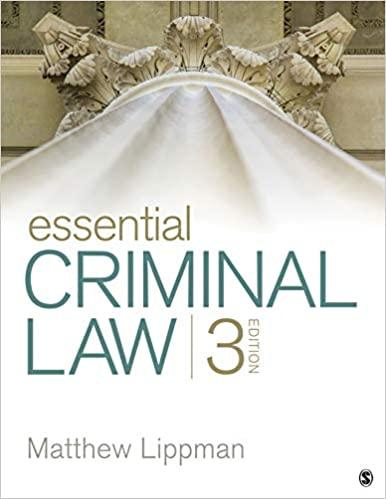Question
Donald established an irrevocable trust on May 10, 2014. The trust named his wife, Melinda, as trustee and named his daughter, Daisy, as backup trustee.
Donald established an irrevocable trust on May 10, 2014. The trust named his wife, Melinda, as trustee and named his daughter, Daisy, as backup trustee.
The trust instrument contained the following key provisions:
This trust is irrevocable. To the extent allowed by law, the assets in this trust shall not be subject to the beneficiaries' liabilities or creditors and shall not be subject to assignment or anticipation by any beneficiary.
During the lifetime of the grantor, the trustee may, in her sole discretion, distribute assets to or for the benefit of the spouse and/or children of the grantor to the extent that she deems appropriate for their health, education, maintenance and support. However, no distribution shall be made for the benefit of Melinda under this Paragraph without the express consent of at least one child or grandchild of the grantor.
During the first five years of the trust's existence, the trustee may, in her discretion, also use trust income (but not principal) for the benefit of Donald, the grantor. After five years shall have elapsed from the execution of this trust, this power shall cease to exist and shall be null and void.
After the death of the last to die of the grantor and his wife, the remaining trust assets, if any, shall be distributed to and among the children of the grantor, in equal shares, per stirpes.
You may assume that the remaining provisions of the trust are fairly standard boilerplate provisions and are not relevant to this question.
On June 1, 2014, Donald transferred $2,000,000 to this trust.
Please answer the following questions regarding this trust:
1)How much (if any) of the transfer is eligible for the gift tax marital deduction? Explain.
2)Are the trust assets part of Donald's taxable estate? What does this depend on? Explain.
3)Why are gifts to this trustnoteligible for the gift tax annual exclusion? What could be done to change that? Please describe.
4)Are the trust assets part of Melinda's taxable estate? Explain.
5)For income tax purposes, is this trust considered a "grantor trust"? Explain.
In answering each question, please make sure to cite applicable authority. For this assignment, that means citing appropriate statutes in the Internal Revenue Code. The answer to each question on this assignment appears in the Internal Revenue Code itself. There is no need to cite regulations or case law. It is expected that all of your answers will cite appropriate sections of the Internal Revenue Code.
Step by Step Solution
There are 3 Steps involved in it
Step: 1

Get Instant Access to Expert-Tailored Solutions
See step-by-step solutions with expert insights and AI powered tools for academic success
Step: 2

Step: 3

Ace Your Homework with AI
Get the answers you need in no time with our AI-driven, step-by-step assistance
Get Started


